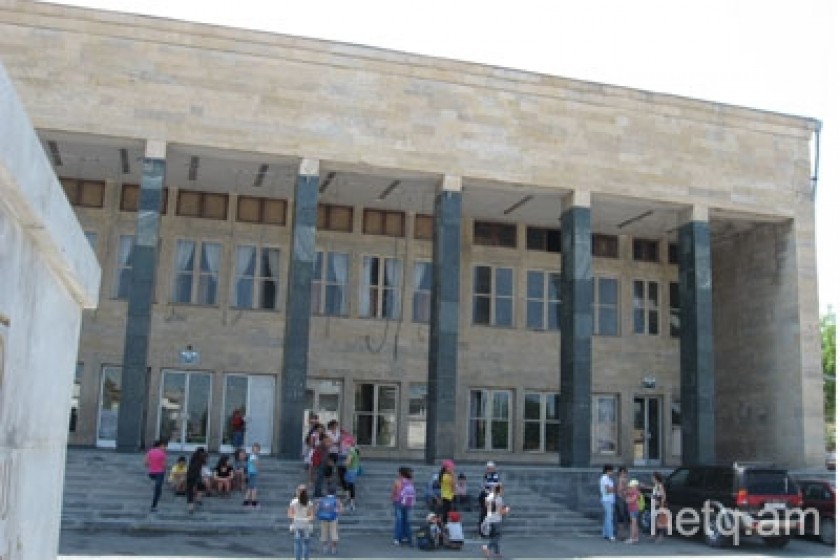
No Libraries in Akhalkhalaki for a While
There are 70 libraries in the Akhalkalaki region but they haven't been open since January of this year.
Prior to 2007, the libraries belonged to the Akhalkalaki Region's Department of Culture. The Culture Department was a centralized organization which managed and financed all the cultural institutions in the region – clubs, music schools, art schools, museums, etc. As of January of this year, the Department of Culture was restructured into the Agency of Education, Culture and Sports, each branch of which will gain the status of legal entity and will be belong to the Municipality of Akhalkalakh (previously a region, now a municipality).
The planned changes are vague and have created confusion in the region. Since January 1 the library system has been shut down, to be reopened once the changes are in place. According to the new plan, of 70 libraries, only 16-20 will be reopened, including the city library of Akhalkalakh. But, according to Valeri Stelmashov, head of the Akhalkalakh Municipality's Education, Culture and Sport Agency, the project hinges on uncertainty. At present, there seems to be little concrete information. The old libraries are closed, no libraries are open, there will be layoffs in the future, but the workers do not know who will remain and who will be laid off.
“2007 started with all these difficulties. On one hand, it's bad that the workers will suffer, but on the other hand, the conditions of the libraries that will be reopened will improve and they will function according to the modern standards, maybe even with computerization, “ Stelmashov said.
During Soviet times, libraries received Armenian and Russian books every month. The buildings were repaired and heated. The work of the libraries was well organized. After the collapse of Soviet Union, the number of libraries decreased, but each village still had at least one, and in large villages there were two or three.
In recent years, however, the libraries have been forgotten. The hours of operation were cut in half; librarians worked part time and earned 15-16 lari (about US$8) a month. In some villages the libraries were closed down completely and the buildings privatized. The librarian in the village of Ghadolar village had to take the books to her own home. She found room for some of them on her own shelves, the rest she stored in the garage. The situation is similar in villages throughout the region.
“We don't think it's a good idea to maintain all the libraries. If no one uses the books, it makes no sense to have so many libraries in the region,” said Valeri Stelmashov.
At the moment there are only two libraries open in Akhalkalakh – the city library and the children's library, both of which are in dire conditions. The city library is slightly better off—it is spacious, with seven or eight rooms and a reading hall. The director of the library refused to answer our questions, saying that they were in a state of uncertainty and that he wouldn't be able to give us any information until a specific decision had been issued.
Meanwhile, librarians say that the number of books is gradually decreasing, and that no new books have been bought for quite a while. “All we have left is whatever we had. The old books are not cared for. The shelves are in bad shape, and books get damaged as a result. The roof leaks. Temperature swings adversely affect the books. Over the winter, the poor books get wet and damaged,” said one of the workers, who wished to remain anonymous.
The library building is in need of a repair. The heating system is not functioning. To keep warm, librarians have to bring wood or heating oil from their own homes. Working hours are from 10-4, but in the winter the library closes at 1.
“We don't have any alternative. How long are we supposed to sacrifice ourselves? They should be happy that we freeze here for three hours, “ Anahit, a librarian, said.
The library has 30,645 books. There are 21,082 books in Russian, 5,281 in Armenian, 4,272 in Georgian, and a handful in other languages. The only new books are donations; the last package of books came as a gift from Armenia's National Library.
The library has 323 patrons, mostly students, though not all are active.
Seeking improved working conditions, the library staff has sent numerous letters to the Georgian government and to the regional authorities. But their complaints and letters have yielded few results. The librarians are now impatiently awaiting the restructuring, even though they know that they may have something to lose.
 Videos
Videos Photos
Photos
Write a comment